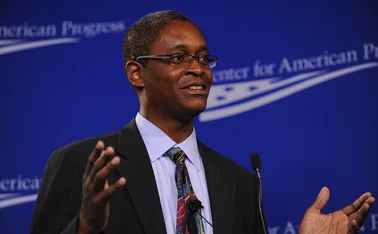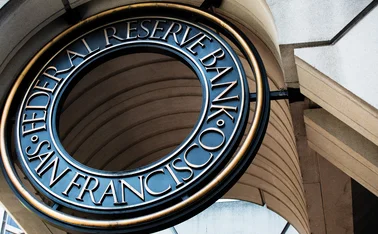
Order or chaos? – Safeguarding multilateralism


Globalisation affects everyone, but its benefits pass many by. These people remain ‘locals’, with often sedentary and parochial outlooks. Globalisation polarises our societies between these locals and the ‘cosmopolitans’, who broadly benefit from and welcome globalisation. Sometimes this division can be overlaid on that between young and old, in which the cultural changes wrought by globalisation antagonise young people less. It also increases the division between urban and rural areas. Moreover, there is a danger that the growth poles of a new globalised economy will concentrate wealth and accelerate cumulative growth, while other regions fall into a downward spiral of deprivation.
Economic globalisation seems to have already peaked. This is partly because the global financial crisis of 2007–08 had already dealt a major blow to globalisation. Trade was in the doldrums before the US–China trade dispute. Between 2012 and 2016, the volume of global trade grew by around 3% a year, less than half the average rate of the previous three decades. Since the financial crisis, a growing share of global trade has been subject to protectionist measures, creating new distortions, often in the form of state subsidies for exports. Cross-border flows of capital, direct investment and lending have also slowed over the past decade. Factors unrelated to protectionism have also weighed on trade: companies increasingly needing to control regulatory, reputational and political risk in their supply chains, which encourages companies to keep supply chains short and production close to market.

The aspect of globalisation most disruptive to Western societies is uncontrolled migration. Sometimes a fear of migration takes on irrational and disproportionate forms – such as nationalism, populism and protectionism. Migration itself is undergoing globalisation – on Europe’s doorstep is Africa, where a demographic explosion could make it the most populous continent by the end of the century. It therefore has great potential for migration, far beyond the European Union’s economic needs.
The perils of protectionism
New globalisation has had a major impact on economic growth and its distribution – at least on a global scale. It has never been possible to lift so many people out of extreme poverty in such a short time. This is the result of at least two movements: the global institutional framework aimed at opening up borders – particularly in the area of trade – and economic reforms in some countries that allowed them to benefit fully from global openness. Rich and poor countries strengthened each other: advanced economies provided employment for people from countries as yet undeveloped. The theory of comparative advantages played an important role. From a global vantage point, it was a win-win situation. But, as we have seen, global harmony goes hand in hand with internal polarisation, which has led to the questioning and even threatening of the legitimacy of the multilateral framework – globalisation itself.
What can be done to preserve multilateralism? First and foremost, the redistribution of the fruits of economic growth must be taken seriously, including at a national level. Social issues are once again at the heart of politics everywhere. It should be made clear that the process of ‘creative destruction’ need not inexorably lead to absolute or relative decline. A regional development policy can encourage new economic activities and retraining of the workforce, as the EU has successfully demonstrated in many of its regions.
Freeing up market forces must go hand in hand with a compensatory regional policy; the market must be corrected by the public authorities. If, on the other hand, the government adopts protectionist measures, it disrupts the market to the detriment of consumers and their standard of living. Moreover, there is a risk of ending up in a game of ‘tit for tat’ directed against national economies and other producers not previously affected by globalisation. Above all, protectionism creates uncertainty for investment, which is the very engine of future economic growth.
However, this preference for openness can only be sustained if all countries comply with the rules of the game. The legitimacy of the multilateral system depends on both free and fair trade. If there are any disputes, they must be resolved by the proper mechanisms. Countries committed to multilateralism must be able to demonstrate that dialogue leads to conflict resolution; otherwise, the door is open to protectionist measures, even if they would be rationally counterproductive in the longer term. The EU’s attitude is simply ‘firmness and dialogue’: respect the principles, but always be ready to speak.
The EU remains a strong supporter of rules-based trade, but developments in recent years have also raised awareness of the need for the EU to be less dependent on imported new technologies or on non-European companies in strategic sectors.
Globalisation also means strengthening interdependence, thus eroding national sovereignty. The EU is very familiar with this process. The UK is now exploring how it will continue to trade with other markets as well as the EU, which is currently the export market for half of its goods and services, following its secession from the EU.
It is no longer possible to have full control over policy when one is so dependent. The US, too, is aware there are limits to its own trade policy in view of the advanced state of the value chain and of international trade. This interdependence was spectacularly expressed during the financial crisis, which demonstrated how the movement of capital is even more global than that of goods and services. Only a collective effort by the Group of 20 and the International Monetary Fund (IMF) at regional and national level averted an implosion of the global financial system and far more serious economic consequences than a recession.
After overcoming the acute phase of the financial crisis, all countries reacted with an exuberant expansion of the money supply and an unprecedented reduction in interest rates to stimulate economic growth and avoid deflation. At the root of the financial crisis was a lack of banking supervision at national and international level; laissez-faire economics had made the system extremely fragile. Governments had to save the market economy by rescuing a large number of banks and by adopting a structural approach to banking supervision. Although most of the measures are still at a national level, international collaboration meant governments were working in the same direction.
There is now a danger that governments almost automatically revert to this type of policy when a problem arises: for example, the response to the trade war has been – and remains – a wave of expansive monetary policy. The recession is global and synchronous, and all global actors react in almost the same way. This type of monetary policy is becoming a substitute for all other policies.
Prophet warning
Politics lies at the base of the economic problem, which must therefore be solved politically. The current extremely low interest rates encourage exaggerated risk-taking on the part of individuals, companies and governments. The simple fact that the current level of global private and public debt is clearly higher than 10 years ago is a significant warning shot. A large proportion of this debt is down to non-performing loans in banks’ portfolios. There is more government control over the known channels of credit, but also the market is ‘crawling where it can’t go’ and is looking for ways out for those who want to take more risks. Before the banking crisis, there were low interest rates and little surveillance – an explosive cocktail. This danger has not completely passed.
Inflation remains low, so monetary authorities are more inclined to adopt an accommodative monetary policy. The prophets of doom predicting a resurgence of inflation have thus far not been proved right. Inflation – or a lack thereof – may now have more to do with supply factors (such as energy or wages) than with demand. Globalisation has changed the nature of inflation. In Western democracies, current monetary policy is also defended because a restrictive policy and the resulting recession would play into the hands of populists. In other countries, there is a fear of social malaise. Low interest rates, however, contribute to another type of dissatisfaction by affecting savers’ assets. It creates tensions between older people living off the incomes of saved assets, and young people who are in debt and whose jobs are threatened by policies that are too restrictive.
Budgetary policy is also under pressure from populism. Austerity drags on incomes and slows down the economy and employment, which benefits populists. It should be borne in mind that, in the West, populism is on the left in socioeconomic terms, and on the right in sociocultural terms (migration). Political reasons therefore also determine monetary and budgetary policy. Even independent central banks do not work in a political and social vacuum.
Back to the abyss?
A ‘normalisation’ of monetary policy depends, to a large extent, on the solution of political problems – the sooner this happens, the better.
In the event of another financial crisis, it will be more difficult to formulate a global response because, in recent years, trust between global actors has declined sharply as a result of economic and political tensions. This negative climate is a handicap in crisis management and a brake on the rescue or strengthening of multilateral institutions.
It is a pity the international community was only able to act forcefully at a time of crisis, with its back to the wall and on the edge of an abyss. This is also too often the case within the EU. Strengthening and modernising multilateral institutions in normal times can reduce and even avoid the cost of a crisis.
One of the major global priorities today is to safeguard the functioning and existence of multilateral institutions. It is a choice between order and chaos. The modernisation of these institutions – in particular the World Trade Organization (WTO), is necessary to deal with new forms of market-distorting subsidies. The world has changed, but the WTO has not. In the case of the IMF, it is a question of further adapting to the new economic power relations. These reforms must give these institutions a new legitimacy. Like-minded countries can take initiatives, not against others but for a more stable world.
After the financial crisis, the G20 became more of a forum than a centre of decision-making – which was a disappointing development. The co-ordination of economic and monetary policy is almost non-existent. In addition, there are systemic problems such as the level of private and public debt and the impact on financial institutions.
Therefore, a need for global governance exists, though this will not take the form of a single new institution or a single government. Global governance will be the work of different institutions, each of which will include the main actors. However, this reform is only possible if a minimum level of confidence is restored, requiring efforts on all sides. Some bear more liability than others, but no-one is without responsibility.
Only users who have a paid subscription or are part of a corporate subscription are able to print or copy content.
To access these options, along with all other subscription benefits, please contact info@centralbanking.com or view our subscription options here: http://subscriptions.centralbanking.com/subscribe
You are currently unable to print this content. Please contact info@centralbanking.com to find out more.
You are currently unable to copy this content. Please contact info@centralbanking.com to find out more.
Copyright Infopro Digital Limited. All rights reserved.
As outlined in our terms and conditions, https://www.infopro-digital.com/terms-and-conditions/subscriptions/ (point 2.4), printing is limited to a single copy.
If you would like to purchase additional rights please email info@centralbanking.com
Copyright Infopro Digital Limited. All rights reserved.
You may share this content using our article tools. As outlined in our terms and conditions, https://www.infopro-digital.com/terms-and-conditions/subscriptions/ (clause 2.4), an Authorised User may only make one copy of the materials for their own personal use. You must also comply with the restrictions in clause 2.5.
If you would like to purchase additional rights please email info@centralbanking.com







